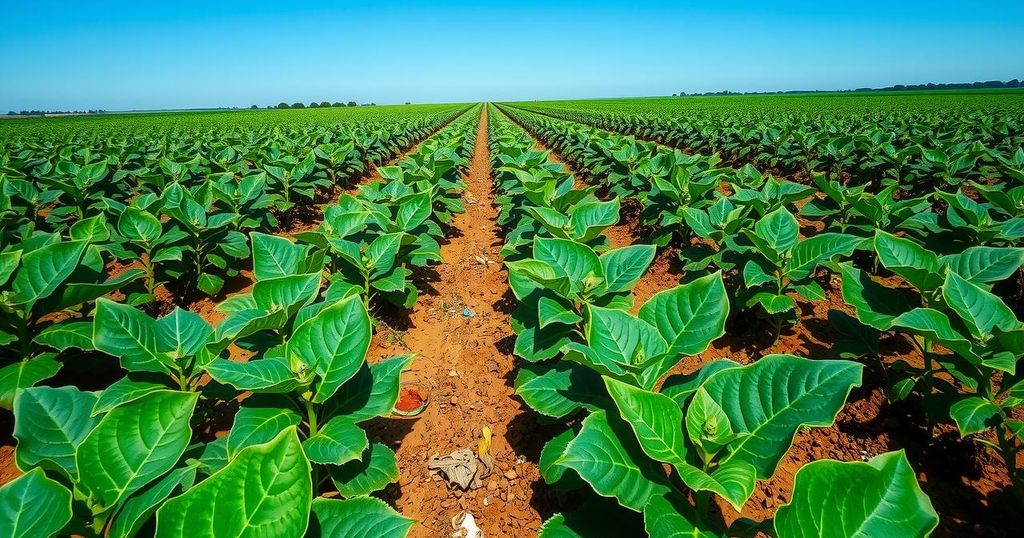Brazil incurs annual losses of $1.76 billion due to soybean seed piracy, impacting agriculture, tax revenue, and employment. The illegal market undermines crop quality and stifles innovation. Collaborative efforts are essential to address the issue and safeguard the industry’s future.
A recent study by CropLife Brasil and agribusiness consultant Celeres Consultoria reveals that soybean seed piracy costs Brazil approximately 10 billion reais (equivalent to $1.76 billion) annually. This issue not only impacts the country’s agricultural economy but also highlights significant challenges faced by enterprises in the seed, chemical, and biotechnology industries. As Brazil ranks as the leading soybean producer and exporter globally, the illegal counterfeit seed market presents substantial obstacles to growth.
The research indicates that pirated soybean seeds occupy about 11% of the land used for soybean cultivation in Brazil. According to the national crop agency Conab, the area planted with soybeans for the 2023/24 season is reported at 46.15 million hectares (114.039 million acres). This area is projected to expand to 47.45 million hectares by 2024-2025. The rampant use of counterfeit seeds threatens not only the nation’s agriculture but also its international reputation in this economic sector.
The financial impact of seed piracy is significant, with estimated losses in potential tax revenue reaching approximately 1 billion reais ($176.15 million) over the next decade. The report further suggests that addressing seed piracy could redirect investments to enhance seed varieties, potentially yielding 900 million reais ($158.99 million) in resources over ten years. The repercussions of reduced tax revenue extend beyond agriculture, affecting public funds available for vital services and infrastructure.
The findings illuminate a pressing concern for agricultural stakeholders. CropLife Brasil emphasizes the necessity for collaborative efforts to combat seed piracy, which undermines the industry’s integrity and hinders economic growth at the national level. The presence of counterfeit seeds poses a direct threat to innovation and technological advancement in agriculture, both crucial for achieving enhanced productivity and sustainability.
Agriculture plays a pivotal role in Brazil’s economy and employment landscape. The agribusiness sector is among the nation’s largest employers, and unchecked seed piracy risks jeopardizing the livelihoods of numerous workers. Mitigating illegal trade could bolster Brazil’s standing in international markets and help safeguard jobs within this vital sector.
The issue of soybean seed piracy in Brazil represents a significant threat to the nation’s agricultural economy, leading to estimated annual losses of $1.76 billion. The pervasive problem not only affects crop yields and quality but also has broader implications for tax revenue and public services. It is critical for industry stakeholders to collaborate effectively to mitigate this illegal trade and promote sustainable agricultural practices, ultimately protecting jobs and Brazil’s competitive position in the global market.
Original Source: www.tradingview.com






